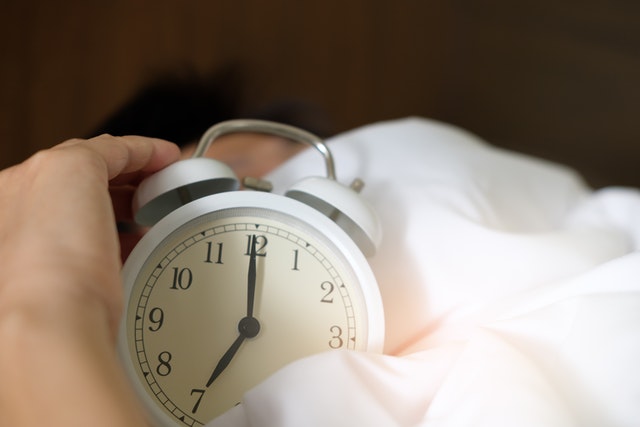Sleeping is an essential part of our health and overall function, allowing us to refresh our minds and bodies. The average adult should aim to sleep seven or more hours per night on a regular basis to achieve optimal health and to feel well-rested. 1 Difficulty waking up is a common experience based on situational factors which vary per individual. This phenomenon is known as sleep inertia and may provide the explanation for tHE question “why am I tired when I wake up?”.
Sleep inertia
Sleep inertia refers to the transitional state between when we sleep to when we are awake marked by drowsiness, disorientation, and cognitive impairment.2 The severity and span of sleep inertia are caused by different factors. Examining the underlying causes of sleep inertia is important for regulating this period of time and preventing it from becoming a daily occurrence.
Sleep deprivation
Sleep deprivation is one of the biggest reasons why we feel tired after we wake up and is characterized by short sleep duration. While we sleep, our body’s biological functions change such as heart rate, blood pressure, hormonal secretion, and immune function.3 A lack of sleep can cause biological consequences which can lead to cardiometabolic and neurological deterioration.3 Additionally, recovery sleep after a cycle of sleep deprivation may intensify the effects of sleep inertia due to the pronounced effects of sleep deprivation.2
Is it good to nap
Naps provide relaxation, energy boosts, reduce fatigue, and increase alertness, however, napping for too long may disrupt the circadian rhythm. When we sleep our bodies go through cycles governed by our internal clock known as the circadian rhythm. It is suggested that naps are to be kept to less than 30 mins to avoid entering deep sleep and subsequentially waking up during this time feeling lost or confused.4 Likewise, taking naps may interfere with getting a good night’s sleep which in turn will lead to increased sleep inertia the following morning.
Caffeine intake
Caffeine is an adenosine-receptor antagonist which works on receptors related to sleep, arousal, and cognition.5 Caffeine consumption can alleviate the symptoms of sleep inertia, but researchers have also found that caffeine intake is associated with deficient subsequent sleep patterns.5 Other factors may enhance the effects of caffeine intake such as nicotine, which increases the metabolic speed of caffeine by as much as 50%.5 A study conducted examined the effect of 400 mg of caffeine given to participants at their usual bedtime and found that even doses given six hours prior to bedtime considerably disturbed sleep.5 Disturbed sleep then led to increased sleep inertia, which can ultimately lead to sleep deprivation.
Ways to overcome feeling tired when you wake up
- Create a schedule and sleep at the same time every night which will regulate your circadian rhythm
- Avoid caffeine late at night
- Time your naps
Feeling tired upon waking up may be recurrent but can often be restored through a few lifestyle changes.
References
- Watson NF, Badr MS, Belenky G, et al. Recommended Amount of Sleep for a Healthy Adult: A Joint Consensus Statement of the American Academy of Sleep Medicine and Sleep Research Society. Sleep. 2015;38(6):843-844. Published 2015 Jun 1. doi:10.5665/sleep.4716
- Trotti LM. Waking up is the hardest thing I do all day: Sleep inertia and sleep drunkenness. Sleep medicine reviews. 2016;2017;35:76-84. https://doi.org/10.1016/j.smrv.2016.08.005
- Tobaldini E, Costantino G, Solbiati M, et al. Sleep, sleep deprivation, autonomic nervous system and cardiovascular diseases. Neuroscience and biobehavioral reviews. 2017;74;321-329. https://doi.org/10.1016/j.neubiorev.2016.07.004
- Hilditch CJ, Dorrian J, Banks S. Time to wake up: reactive countermeasures to sleep inertia. Industrial Health. 2016;54:528-541. https://doi.org/10.2486%2Findhealth.2015-0236
- O’Callaghan F, Muurlink O, Reid N. Effects of caffeine on sleep quality and daytime functioning. Risk Management and Healthcare Policy. 2018;11:263-271. https://doi.org/10.2147%2FRMHP.S156404



